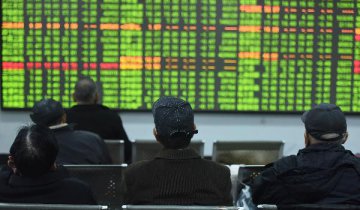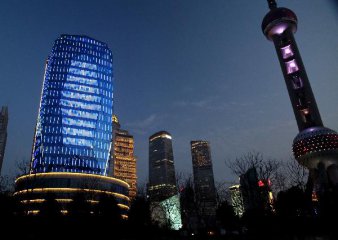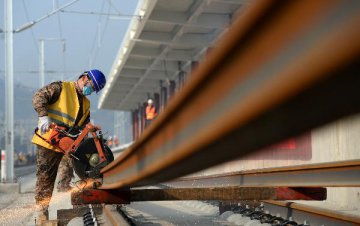
This year’s government work report requires to intensify efforts to implement the Made in China 2025 initiative and promote accelerated application of big data, cloud computing and the Internet of Things (IoTs). The Made in China 2025 initiative has been included in the government work report for three consecutive years. Deputies to the National People’s Congress (NPC) and members of the National Committee of the Chinese People's Political Consultative Conference (CPPCC) believed that China needs to make innovations in manufacturing to move toward intelligent manufacturing. To develop artificial intelligence (AI) and the IoTs technology is a major path to achieve transformation and upgrading in the manufacturing industry. China should make full use of the capital market to transform and upgrade the industry.
China needs to make breakthroughs in manufacturing
The Made in China 2025 initiative was first included in China’s government work report in 2015, and began to implement in 2016. In this year’s government work report, except the expression of “intensify efforts to implement”, it also stressed “promoting accelerated application of big data, cloud computing and IoTs.”
Li Zhaoting, NPC deputy and chairman of Tunghsu Group, believed that China’s manufacturing industry has a large scale, but is not strong. It still lags far behind from the world advanced level. On the surface of it, the industry is now confronted with overcapacity. But in essence, there is something wrong with the supply side. A great number of entrepreneurs and scholars believed that the Made in China 2025 initiative was made to save the large yet not strong manufacturing industry. China has established a complete range of industrial system, and become the world’s largest manufacturer in terms of quantity. But there are still various issues in its manufacturing industry, such as lack of core technologies and poor capability in independent innovation.
Li Dongsheng, NPC deputy and chairman of the Shenzhen-listed company TCL Corporation (000100.SZ), believed that the real economy faces two external challenges in the process of transformation. Firstly, the mid- and low-end products are hard to be exported as the manufacturing industry in other developing economies has improved, which results in overcapacity. Secondly, the U.S. and other developed economies are returning to the manufacturing industry, making it even harder for China to make breakthroughs in manufacturing. The two large challenges from the overseas have brought great difficulties to China’s manufacturing industry on its way of transformation.
“To solve these difficulties, China has to continuously improve the innovation ability in the manufacturing industry, particularly the intelligent level, so as to transform the industry from a traditional model to a new intelligent model,” said Xu Lin, head of the Department of Development Planning of the National Development and Reform Commission (NDRC).
Li Zhaoting suggested taking more efforts in advance the supply-side reform. For example, China can increase investment and supports for the green manufacturing industry. The society should attach importance to “soft power” and advocate “the spirit of workmanship” and “manufacturing civilization”.
Develop AI technology
It is urgent for China to vigorously develop AI and IoTs if it wants to move to “intelligent” manufacturing. Robin Li, CPPCC National Committee member and chairman of Baidu, believes that the AI is a strategic opportunity that China should not miss in the process of transform its manufacturing industry from labor-driven to innovation-driven one and from machine-driven and intelligence-driven one. The AI is also a strategic opportunity for China to achieve its economic transformation and upgrading.
Li's proposals were all related to AI. His proposals include applying AI technology to help find lost children and to improve traffic lights.
"In particular, to implement the Made in China 2025 initiative and achieve transformation and upgrading, the most important thing is the AI technology. As the AI matures gradually, those who can make breakthroughs in AI application will take the upper hand in the era of intelligence,” Robin Li pointed out.
Deng Zhonghan, NPC deputy and academician of the Chinese Academy of Engineering, pointed out that China should attach great importance to the development of the new generation AI technology, vigorously develop independent AI chip and formulate AI chip standards to make the new generation AI technology become an innovation-driven engine in the information age, thus facilitate economic transformation and upgrading. He proposed to "increase investment in scientific and technological innovation and stand out the AI era with independent chips.” He explained that the next 10 years will be a critical period for the development of the new generation of AI technology, and chip is the source for AI development. But the existing chips are still backward developed. The development of chips with super computing power and consistent with market demands becomes a key for countries around the world to stand out as an AI power. To seize a strategic commanding height in the AI era, China should increase both financial and policy supports to vigorously develop independent chips that provide platforms for AI operation and change the current situation of massive dependence on imported high-end chips. So that China will gain advantages in the AI era.
Lin Xiaofa, chairman of JOMOO, pointed out that the core of intelligent manufacturing is C2F; that is, customer-to-factory. C2F will make user demands more accurate and manufacturers respond more rapid. It is the beginning of innovative and intelligent manufacturing for the entire manufacturing industry. With intelligent manufacturing system, manufacturers can do better in design cycle and service quality and realize their commitments to customers. And the idea of “energy conservation, environmental protection and quality benefits” advocated by the government can only be achieved via intelligent manufacturing.
Make innovations
"Today, to make a manufacturing power, but not simply be a large manufacturer, it should promote the supply-side reform.” Dong Mingzhu, NPC deputy and chairman of Gree Electric Appliances, pointed out, “the supply-side reform means that we should buy other’s technology, we should make it by ourselves. We should make technological innovations radically. This is the most valuable thing.”
Liu Shuwei, researcher of the Finance Research Institute of the Central University of Finance and Economics, pointed out that China's intelligent manufacturing urgently needs independent core technology. On the one hand, when Chinese companies acquire equities from foreign companies to obtain core technology, the acquired companies usually ask high prices. On the other hand, foreign companies often do not accept Chinese companies as strategic investors. Even if they are acquired, Chinese companies cannot intervene in the target company’s business and core technology. “There is the problem. If they do not accept Chinese companies as strategic investors, all core stuff may quit. Then the company will become a shell. But if Chinese companies make financial investment, they may raise their share prices. Is there any room for profit?” Liu Shuwei said.
“To address these problems, we must first of all conduct of ourselves honorably. Enterprises must seek for innovation-driven development, make full use of the capital market while pursuing industrial transformation and upgrading, and make their contributions to the revitalizing of economy”, Li Zhaoting said. Many experts held the same view and they believed that many high-end technologies cannot be bought with money. Integration process is still needed even if advanced technologies are obtained through acquisition. Whether the technologies can be acclimatized and internalized is still uncertain.
In the opinion of Song Xiaogang, vice-president of the China Machinery Industry Federation, the key point is to master core technologies no matter the technologies are acquired through introduction or independent innovation. Introducing technologies helps to quicken the pace of mastering core technologies. The precondition of independent innovation is to make innovations on the basis of introduced technologies since introduced technologies are usually not core technologies.
Translated by Coral






















Latest comments